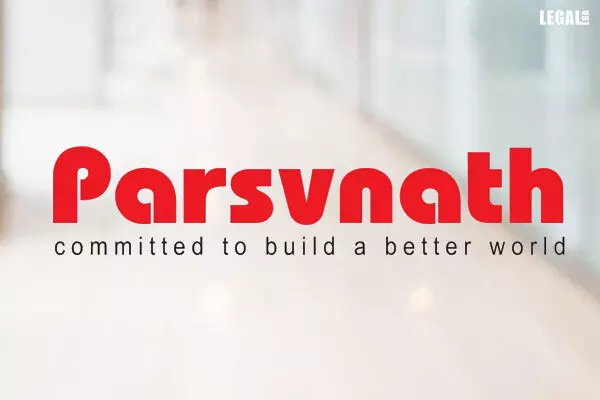- Home
- News
- Articles+
- Aerospace
- Artificial Intelligence
- Agriculture
- Alternate Dispute Resolution
- Arbitration & Mediation
- Banking and Finance
- Bankruptcy
- Book Review
- Bribery & Corruption
- Commercial Litigation
- Competition Law
- Conference Reports
- Consumer Products
- Contract
- Corporate Governance
- Corporate Law
- Covid-19
- Cryptocurrency
- Cybersecurity
- Data Protection
- Defence
- Digital Economy
- E-commerce
- Employment Law
- Energy and Natural Resources
- Entertainment and Sports Law
- Environmental Law
- Environmental, Social, and Governance
- Foreign Direct Investment
- Food and Beverage
- Gaming
- Health Care
- IBC Diaries
- In Focus
- Inclusion & Diversity
- Insurance Law
- Intellectual Property
- International Law
- IP & Tech Era
- Know the Law
- Labour Laws
- Law & Policy and Regulation
- Litigation
- Litigation Funding
- Manufacturing
- Mergers & Acquisitions
- NFTs
- Privacy
- Private Equity
- Project Finance
- Real Estate
- Risk and Compliance
- Student Corner
- Take On Board
- Tax
- Technology Media and Telecom
- Tributes
- Viewpoint
- Zoom In
- Law Firms
- In-House
- Rankings
- E-Magazine
- Legal Era TV
- Events
- Middle East
- Africa
- News
- Articles
- Aerospace
- Artificial Intelligence
- Agriculture
- Alternate Dispute Resolution
- Arbitration & Mediation
- Banking and Finance
- Bankruptcy
- Book Review
- Bribery & Corruption
- Commercial Litigation
- Competition Law
- Conference Reports
- Consumer Products
- Contract
- Corporate Governance
- Corporate Law
- Covid-19
- Cryptocurrency
- Cybersecurity
- Data Protection
- Defence
- Digital Economy
- E-commerce
- Employment Law
- Energy and Natural Resources
- Entertainment and Sports Law
- Environmental Law
- Environmental, Social, and Governance
- Foreign Direct Investment
- Food and Beverage
- Gaming
- Health Care
- IBC Diaries
- In Focus
- Inclusion & Diversity
- Insurance Law
- Intellectual Property
- International Law
- IP & Tech Era
- Know the Law
- Labour Laws
- Law & Policy and Regulation
- Litigation
- Litigation Funding
- Manufacturing
- Mergers & Acquisitions
- NFTs
- Privacy
- Private Equity
- Project Finance
- Real Estate
- Risk and Compliance
- Student Corner
- Take On Board
- Tax
- Technology Media and Telecom
- Tributes
- Viewpoint
- Zoom In
- Law Firms
- In-House
- Rankings
- E-Magazine
- Legal Era TV
- Events
- Middle East
- Africa
NCDRC Slams Parsvnath Developers for Delay, Orders Full Refund and Compensation to Buyer

NCDRC Slams Parsvnath Developers for Delay, Orders Full Refund and Compensation to Buyer
The National Consumer Disputes Redressal Commission (NCDRC), led by President Ram Surat Ram Maurya and member Bharatkumar Pandya, declared that unreasonable delays in flat possession constitute a deficiency in service, and buyers cannot be expected to endure them indefinitely.
The buyer, eager to move into his dream home, readily invested ₹7,85,72,450 in a residential apartment/penthouse. The flat was provisionally allotted, with delivery promised within months after the structural work was completed. However, the buyer's proactive approach – from requesting interior changes to seeking compensation for delays – was met with a deafening silence from the developer. Emails were ignored, letters went unanswered, and even promised delivery dates turned out to be empty promises. The company, Parvsnath Developers, offered only further delays as excuses while denying the buyer a copy of the crucial flat buyer agreement. Despite repeated attempts to reach the developer electronically regarding possession, the buyer was left in the dark.
In response to the buyer's complaints, the developer offered a written explanation for the delays. They acknowledged receiving the booking and deposit payments for the flat. Initial setbacks, they claimed, stemmed from difficulties securing project land approval from the Delhi Metro Rail Corporation (DMRC). While they eventually obtained the necessary layout and building plan approvals from other authorities, significant adjustments were required due to changes in Delhi's Master Plan in 2007. Once approvals were finalised, construction began and was completed. The developer emphasised that they never guaranteed a three-year completion timeframe. As per clause 11 of the flat buyer agreement, construction for the specific tower was estimated to be completed within 36 months of its commencement or the booking date, whichever came later, with a six-month grace period for unforeseen circumstances. The developer's counsel maintained that the possession delay was beyond their control due to these external factors.
The NCDRC delved into the heart of the matter: the persistent delay in handing over possession. They acknowledged the developer's acceptance of promised delivery dates, confirmed by correspondence. However, the commission firmly declared that the reasons for the delay, regardless of their validity, were ultimately irrelevant in the face of the ongoing wait. With possession still unrealised, the developer's obligation to return the buyer's investment, along with accrued interest, became clear. In their decision, the NCDRC aligned with precedents set by the Supreme Court in cases like Bangalore Development Authority Vs. Syndicate Bank and Fortune Infrastructure Vs. Trevor D' Limba, reiterating the principle that buyers cannot be indefinitely held hostage to unfulfilled promises.
Wielding its legal authority, the Commission delivered a definitive judgment in the buyer's favour. They mandated a complete refund of ₹7,85,72,240, accompanied by compounding interest at an annual rate of 9 per cent from the date of deposit. Furthermore, the developer was ordered to bear the legal expenses of ₹50,000.



